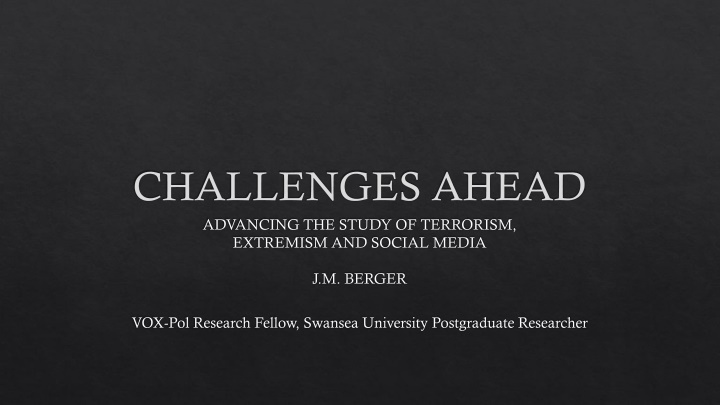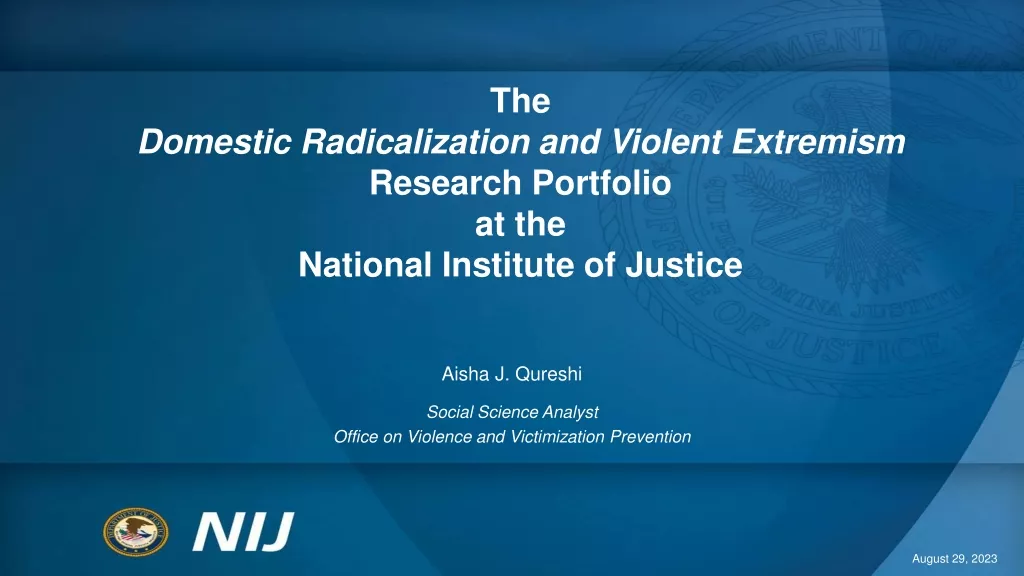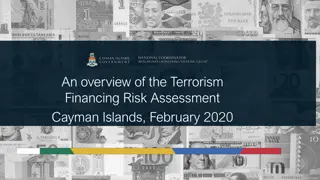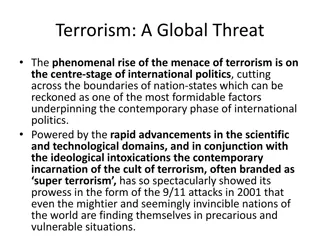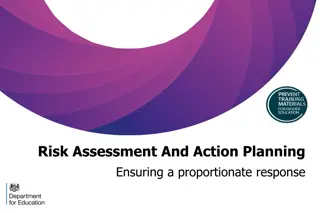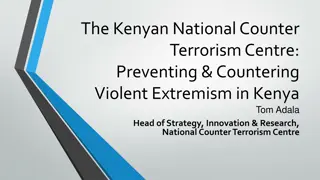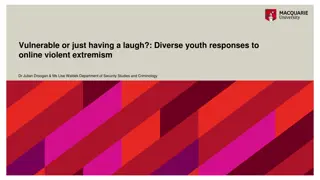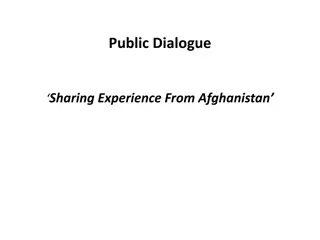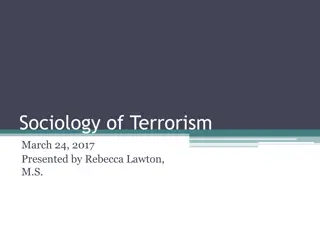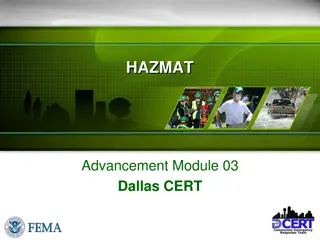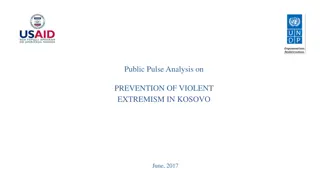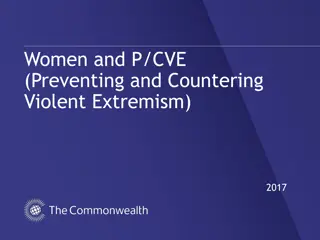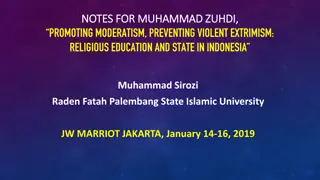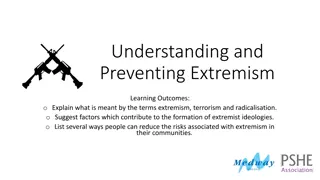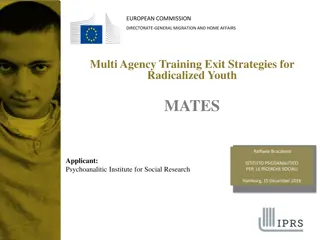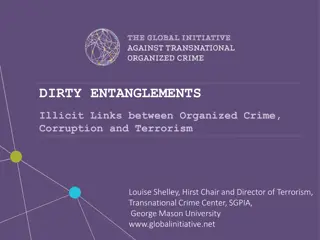Advancing Research on Terrorism, Extremism, and Social Media Challenges
Delve into the complexities of terrorism and extremism studies, uncovering the nuances between violent extremism and terrorism, challenging existing definitions, and exploring the evolving fields in the realm of social media. The discourse navigates the shifting focus, the definitions of terrorism and extremism, research consequences, and the critical role of content moderation in addressing intergroup bias and violence.
Download Presentation

Please find below an Image/Link to download the presentation.
The content on the website is provided AS IS for your information and personal use only. It may not be sold, licensed, or shared on other websites without obtaining consent from the author.If you encounter any issues during the download, it is possible that the publisher has removed the file from their server.
You are allowed to download the files provided on this website for personal or commercial use, subject to the condition that they are used lawfully. All files are the property of their respective owners.
The content on the website is provided AS IS for your information and personal use only. It may not be sold, licensed, or shared on other websites without obtaining consent from the author.
E N D
Presentation Transcript
CHALLENGES AHEAD ADVANCING THE STUDY OF TERRORISM, EXTREMISM AND SOCIAL MEDIA J.M. BERGER VOX-Pol Research Fellow, Swansea University Postgraduate Researcher
Five Theses Violent extremism is the root cause of terrorism Not all violent extremism is terrorism Not all extremism is (materially) violent Terrorism and extremism are two overlapping but distinct fields of inquiry; they are not the same field Political expediency and failure of definition conflates these tracks, inhibiting research and policy advancement
Changing Times, Evolving Fields Terrorism Tactical and material Relatively well-defined Relatively easy to interdict on social media Extremism/violent extremism Strategic and less tangible Very poorly defined Controversial both to interdict and not to interdict
Defining Terrorism General consensus around key elements: Public violence Advancing an ideological goal Designed to shift/manipulate public opinion Targeting may be symbolic or indirect
Defining Extremism No consensus on key elements. The Social Identity Theory approach: Extremism is used to justify intergroup violence and preparation for and commitment to intergroup conflict (McCauley and Moskalenko, 2008). Extremism is the belief that an in-group s success or survival is inseparable from the need for hostile action against an out-group. (Berger, 2018) Intergroup conflict is essential to extremism.
Research Consequences Academic: Category errors, terrorist propaganda Comparative study and longitudinal study Funding streams and accountability of funders Policy: Identification and labelling P/CVE evaluations Proximity to power
Content Moderation Explicit (directive) or implicit (encouragement): Content promoting intergroup bias Content inciting intergroup conflict Content inciting intergroup violence Content inciting terrorism
Where We Go Next Consensus on definition and boundaries of each field Move beyond the Islamization of extremism studies Articulate role of academia in policy arena Articulate role of academia in political arena Articulate role of policy direction in academic arena Potential changes to funding levels, scenarios
